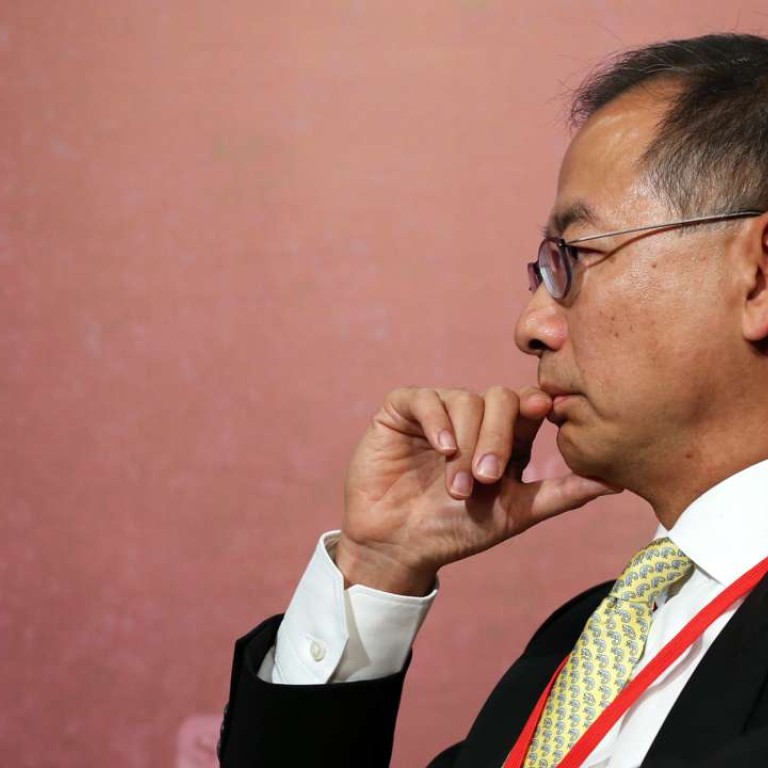
Yuan devaluation won’t hurt China’s ‘One Belt, One Road’, says HKMA deputy
Eddie Yue says long term goals will be unaffected, although pace of development may suffer
China’s “One Belt, One Road” initiative will not be affected in the long term by the devaluation of the yuan although the pace of development may be stifled, according to Eddie Yue, deputy chief executive of Hong Kong Monetary Authority.
Speaking at the South China Morning Post’s China Conference on Friday morning, Yue said the “One Belt, One Road” project will require hefty bond issuance to finance the many infrastructure projects in the 60 countries along the route.
The project, initiated by Beijing in 2013, aims to build roads, railways and other infrastructure projects to promote trade and economic cooperation across countries stretching from Asia through the Middle East and Europe.
The pace of development may be affected by the short term situation of the market but the long term development goal would not change
The decline in the value of the yuan, which has dropped against the US dollar by 7 per cent this year, has led to an alarming wave of capital outflows that has prompted Beijing to introduce a range of measures to tighten capital controls. This week the government introduced a cap on the amount of yuan mainland companies can remit overseas at 30 per cent of their equities.
“The One Belt, One Road project is a strategic project of the country. The investment in these infrastructure projects will not be affected by the devaluation,” said Yue.
“The pace of development may be affected by the short term situation of the market but the long term development goal would not change.
“The recent depreciation of the yuan against the US dollar is not a fundamental problem of the yuan but it is due the strength of the US dollar. If we compare the yen and euro, the yuan is pretty stable.
“It is not so bad for the market to expect the two-way movement of the yuan. The offshore yuan deposit is declining and hence reducing the pool of yuan for investment but the hedging tools on the yuan have developed quickly.”
Yue said he believes the Asian Infrastructure Investment Bank (AIIB), Asia’s answer to the World Bank, led by Beijing to promote infrastructure projects, will accept Hong Kong as member.
“I expect the AIIB will announce the membership of Hong Kong in the next few months,” he said.
Yue said Hong Kong would fight for the role of raising funds for the “One Belt, One Road” project.
“Hong Kong has deep capital markets, big talent pools and the rule of law. Hong Kong could raise funds for these projects,” he said.
Last year, he added, 62 per cent of China’s overseas direct investment came via Hong Kong.
“The Chinese companies can invest directly overseas nowadays, but they like to use Hong Kong as a hub to invest overseas for we have the talent pools, knowledge and regulation. Hong Kong has a role to play even when China further liberalises its market.”

